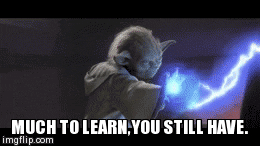|
|
You’re back for Part III of our Collective Wisdom series so I’m going to assume you’re keen to have fun and make new friends discuss business topics and overcome challenges with like-minded peers 😉 In this final installment, we’ll show you how to find or start a mastermind group of your own, and then optimize the group’s time once you’ve found your tribe.
To refresh your memory: We’re drawing insights from two successful WordPress entrepreneurs who’ve gained tremendous value from participating in mastermind groups:
- Katie Keith from Barn2 Plugins, who we recently interviewed for the first episode of our new podcast plugin.fm.
- Cristian Raiber, founder of WPChill and a successful WordPress theme and plugin entrepreneur.
If you’d like to brush up on our previous Collective Wisdom articles before we move on to the finale, hit the links below:
- Collective Wisdom Part I: Why WordPress Developers Should Join Mastermind Groups
- Collective Wisdom Part II: 6 Things Mastermind Groups Can’t Help WordPress Developers With
Without further ado, let’s take a look at:
How You Can Join or Start a Mastermind Group
Sometimes Mastermind Groups Will Find You First

Headhunting does occur. Case in point: Katie was invited to join a mastermind group in 2019. But to be fair, this was probably because she’d already established herself in the ecosystem. So, while you shouldn’t rely on a mastermind group reaching out to you, it does prove that establishing authority in the space via content, attending events, and contributing can really count in your favor.
Realistically, though, it’ll probably be you doing the hard yards if you’re looking to join a mastermind group or start your own.
How to Find Mastermind Group Members
Katie writes an annual year-in-review blog, and whenever she mentions her mastermind group, she’s frequently contacted with requests to join. Unfortunately for these would-be masterminders, her group is full, but she does offer some great ideas on how to join a mastermind group or get peers to join yours in the video below:
Online platforms are also a possibility. Katie elaborates:
There are networks like Twitter and Post Status where you could say, ‘Does anybody want to join a mastermind group?’ But on the other hand, if you’re advertising it widely like that, you might end up with less relevant people in your group. Alternatively, you could go on a website like WP Founders and read about people’s stories and then reach out to them if you think they might be a good fit.
But convenient as online outreach is, it’s still no substitute for real-life interaction.
Networking
“You should go to local and international meetups to connect with people,” Cristian says, expanding on his point in the video below:
With that said, he’s quick to point out that WordPress developers in many Asian, African, and South American countries will likely have a harder time finding events than peers in European and North American countries. Why? Because Europe and North America have larger tech industries, which naturally equals a higher occurrence of professional get-togethers.
Nevertheless, no matter where you’re from, a local meetup just can’t match the sheer scale of Wordcamps and the networking opportunities they afford. For this reason, biting the bullet and buying a ticket to one is a worthwhile investment if you’re looking to make business connections. “It’s definitely the best opportunity to meet fellow product founders in our space,” Katie motivates.
Of course, networking is a talking point that warrants an article of its own. Luckily, we’ve done the legwork already 😉 Check out Talk the Talk: The Solopreneur’s Guide to Building a WordPress Network.
Speaking of networks: You know how your parents always told you to choose your friends wisely?
The Importance of Hand-Picking
Both Cristian and Katie insist that you should:
- Take care to select peers who will benefit your mastermind groups.
- Join mastermind groups where you can add real value.
These points seem obvious, right? Well, there’s some nuance to it, as Katie explains:
It sounds bad, but if you’re at a certain level, there’s no point being in a group with somebody who’s ridiculously more successful than you. You don’t want somebody who’s just starting out either because you’re not really going to learn anything. You need to roughly be on the same level, which is why hand-picking is important.

Right, let’s assume you’ve done due diligence and found a few willing peers… What’s next?
The Ins and Outs of Optimizing Mastermind Groups
The Perfect Format
How long should your mastermind group meet for?
Unique dynamics mean there’s no concrete answer to this, but we can use Katie’s group as a benchmark:
Katie’s mastermind group sessions used to be an hour, but they’ve since tacked on another 30 minutes to account for a seventh member joining. Outside of meetings, the group has a dedicated Slack channel where they discuss matters as they arise.
In the meetings themselves, everyone has a turn to speak, and the group spins a wheel to keep things dynamic. Each member gets 10 to 15 minutes to share their highs/lows from the past two weeks. Everyone also has the chance to plonk themselves down in the ‘hot seat’, where they can discuss pressing matters they believe the group could help with.
There’s only been one instance where it was agreed that the whole meeting would be dedicated to resolving one member’s crisis.
And what about the general vibe? Do mastermind groups blur the line between ‘professional’ and ‘personal’ as they evolve?
In the beginning, Katie’s group dynamic was decidedly professional, but over the years, time spent and challenges solved has seen them get to know each other more personally. While the meeting format hasn’t changed, everyone’s become more chummy.
My point is that mastermind groups aren’t fundamentally places to make friends. But over time, you’ll likely get accustomed to one another and become more comfortable with sharing.
While we’re on ‘vibes’, the number of members in a mastermind group will also influence the atmosphere. Is there an optimum number that you should be targeting?
The Ideal Number
Katie believes the sweet spot is somewhere between four to six people.
We’ve recently grown to seven people, and it’s been great having someone with a fresh perspective and business insights. But personally, I think four to six members offers the ideal breadth of experience.
Adding to this, Freemius founder and CEO Vova Feldman tells me he’s benefitted from a variety of tallies: “Having 1:1 masterminds is also great, as you can dive very deep during one-on-one sessions. I’ve participated in different group sizes, from 1:4, 1:5, and even 1:10. Each has its pros and cons.”
From pros and cons to do’s and don’ts…
Subscribe and grab a free copy to start Mastering SEO on the WordPress.org Repository
Make the WordPress.org search algorithm work for you with actionable tips to rank your plugin higher.

Mastermind Group General Etiquette
Besides please and thank you 😛 (and not blowing raspberries when someone has an opinion you don’t agree with) — what are the unwritten mastermind group rules to abide by?
You Have to Commit to Your Mastermind Group
I’ve mentioned this before, but for a mastermind group to work, you have to put in time and effort and make sure you show up for sessions. And if you really can’t make it, you’ll need a valid excuse and ensure it doesn’t become a common occurrence. Time is money, and if you’re wasting your fellow masterminders’ time, it’s going to sour the sessions.
Mastermind Group Cadence: How Often Should Meetings Occur?
Frequency will vary according to the number of people, how busy they are, and other criteria.
- Katie’s group meets fortnightly.
- Vova tells me he’s been part of groups that meet once a month and once every two months. He also knows of groups that meet once a year for several consolidated days — kind of like a mastermind retreat.
Speaking of ‘retreat’ — when it comes to numbers, don’t 😉
Don’t Shy Away from Discussing Numbers in a Mastermind Group
Entrepreneurial mastermind groups are platforms for discussing business. As such, figures like profits, losses, salaries, expenditures, etc. will come into play. But how much information should you disclose? Katie and Cristian have differing opinions:
-
- Christian says it’s important to be open and honest, but that you should realize there are limits. “In my mastermind groups, we talk about numbers, but we never talk about them specifically.”
- Katie doesn’t share profit numbers publicly, but everyone in her mastermind group knows how the other is doing. In fact, she believes being closed off and not open to sharing is a mistake:
Vova elaborates on the topic of revealing your business numbers:
“In general, you want to strive to have a group where there’s so much trust that you feel comfortable sharing all of your numbers. In reality, however, it’s not always the case and it takes time until you build that level of trust with your mastermind group. Until then, you can share percentages and other KPIs that are relevant to the topic you’d like to get input on.”
Don’t Expect Homework or an Agenda
But make sure you bring results to the table.
“There are groups where accountability is a requirement to stay on board,” Vova states, going on to say:
You have to commit to experimenting with ideas offered by peers. If someone keeps complaining about the same challenge but hasn’t attempted any of the options the group proposed, it’s a waste of everyone’s time and energy. In other words, if a group member doesn’t listen and actively apply the group’s feedback, they shouldn’t be included.
Cristian’s never had to complete any ‘tasks’ before or after sessions. His mastermind groups focus on tapping into the collective wisdom of other members. “It’s about meeting up, raising topics and questions, and getting advice,” he explains.
Katie says the only exception to homework and agendas in her mastermind group is Black Friday.
“We’ll typically have a pre-Black Friday planning call where we share the things we’ve learned from the previous year, discuss the designs of our landing pages, and things like that.”
Her group always sets goals for their next session on Slack, but there are no consequences if a member doesn’t stick to the goals — they’re more of a guiding light.
A last word on commitments and consequences…
Contracts and NDAs
Should you have contracts and non-disclosure agreements (NDAs) in place?
At the end of the day, it depends on you and your situation and whether you feel having them in the group is necessary. Katie says her group has a verbal agreement in place and that everyone’s consistently honored it.
An instance where you might consider bringing legal documents to the fold is if your business information is confidential or privileged because of partnerships or investors.
All right — that’s the lowdown. I reckon it’s time for you to spread your wings and fly, dear WordPress solopreneur…
… And Have Fun While You Do It 🦅!
Yes — being a solopreneur in the WP industry can be tough, and it’s important to muster all the resources you can (which includes like-minded peers to advise and support you). But a big part of this wild ride is enjoying the journey. If anything, starting, joining, or even being invited to a top-class mastermind group is a by-product of the bigger picture: making great products, contributing valuable content/tutorials, and showing up for WordPress events and meet-ups.
Now — go get ‘em, tiger 🐯










